Following a near-perfect performance against Russia in the semifinals, Team Canada entered the gold medal game with momentum on their side. With a star-studded forward group leading the charge, a defensive system that played tight to the opposition, and a goaltender who was arguably the best in the tournament, a return to the top of the podium seemed not only possible but probable, given the way the Canadians had conducted themselves throughout the tournament.
And then? Irony.
On Tuesday night, Canada got a taste of their own medicine, as the United States executed a nearly flawless effort en route to a 2-0 shutout. Trevor Zegras was outstanding once again, finishing with a goal and an assist before taking home tournament MVP honors. Cam York was stellar, shutting down the Canadian offense and logging big minutes on the American blueline. To cap it all off, Spencer Knight closed the door, registering his tournament-best third shutout.
In what some would say was Canada’s first true test of the tournament, they didn’t play poorly. In fact, they played well enough to win. But in a gold medal game, with everything on the line, playing “well enough to win” is often not good enough. All things considered, it would’ve taken a near-flawless effort to keep a gold medal out of the reach of Team Canada but credit where credit is due, the Americans delivered on the tournament’s biggest stage.
In what was a disappointing end to an otherwise historic tournament, here are three takeaways from Canada’s loss, as they head home with a silver medal in hand.
1. York, Sanderson Help Contain Canadian Offense
When it mattered most, the Americans did what no other team was capable of doing: shutting down Canada’s offense. While no other team could find any structure in the defensive zone, the United States not only found a certain level of coherency but simultaneously limited the number of chances and open looks for Canada.
On paper, the only names that stood out on the American blueline were York, a Philadelphia Flyers first-round pick from 2019, and Jake Sanderson, one of the top prospects in the Ottawa Senators organization and the fifth overall pick from 2020. Turns out, that was plenty for the Canadians, as the pair shouldered the majority of the defensive load for the US.
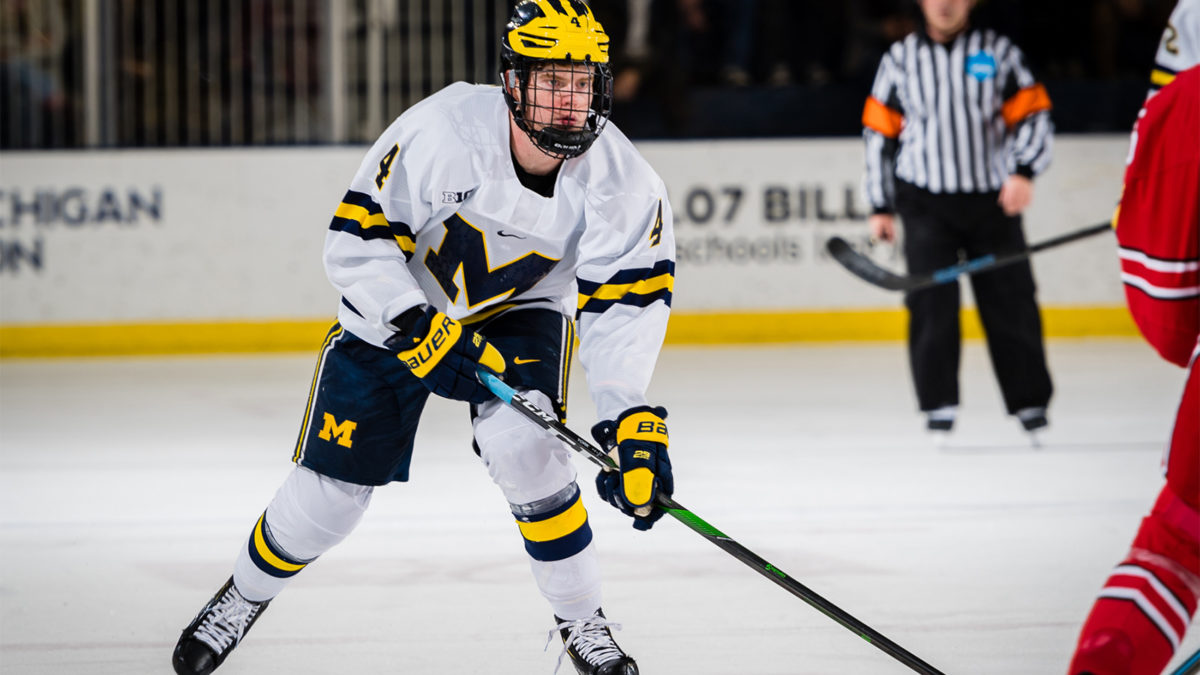
For York, a standout at the University of Michigan, his best game of the tournament could not have come at a better time. Seeing a healthy dose of Canada’s top lines, York rose to the occasion, keeping an active stick and breaking up passes in his own end.
Early in the third, as Canada began to turn the tide, York made a great defensive play on Dawson Mercer, poking the puck off his stick while diving to break up an odd-man rush. Later getting inside positioning on a much bigger player in Quinton Byfield to negate another chance, York was integral in forcing Canada’s forwards to the perimeter.
As a result, Canada had little room to maneuver in the middle of the ice. With an offense built on the ability to create chances in tight and get pucks to high-danger areas, Canada’s chances came few and far between, as they struggled to establish any consistent amount of pressure.
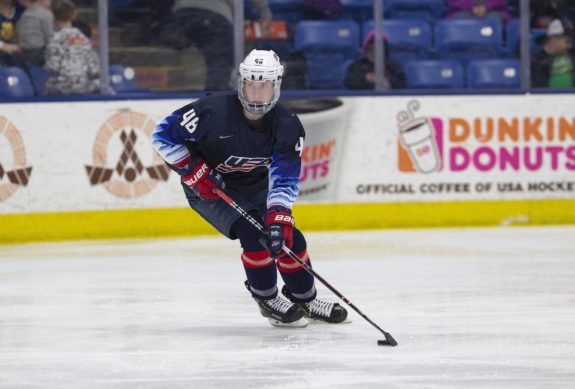
To make matters worse, Sanderson wreaked havoc in the Canadian end, pinching down the wall and depriving the Canadians of any speed in their breakout attempts. Often spending entire shifts in their own zone, Sanderson and company employed a strategy that the Canadians are all too familiar with, staying aggressive in the middle of the ice and giving the opposition little time to think during defensive zone exits.
2. Knight Outduels Levi in a Showdown Between Tournament’s Best Goalies
The Knight who showed up in the gold medal game was the one that the Americans needed. The one that could steal games. The one that could be relied upon in any situation. The one that was taken 13th overall for a reason.
It seems like an eternity has passed since Knight got pulled in the tournament opener against Russia. While the craziness of the World Junior bubble may be somewhat responsible, the resurgence of the American netminder since that dreadful performance is likely the main reason why the beginning of the tournament has been nearly forgotten.
Simply put, the Florida Panthers prospect has been brilliant since, playing a key role in the success that the US has had since their tournament opener.
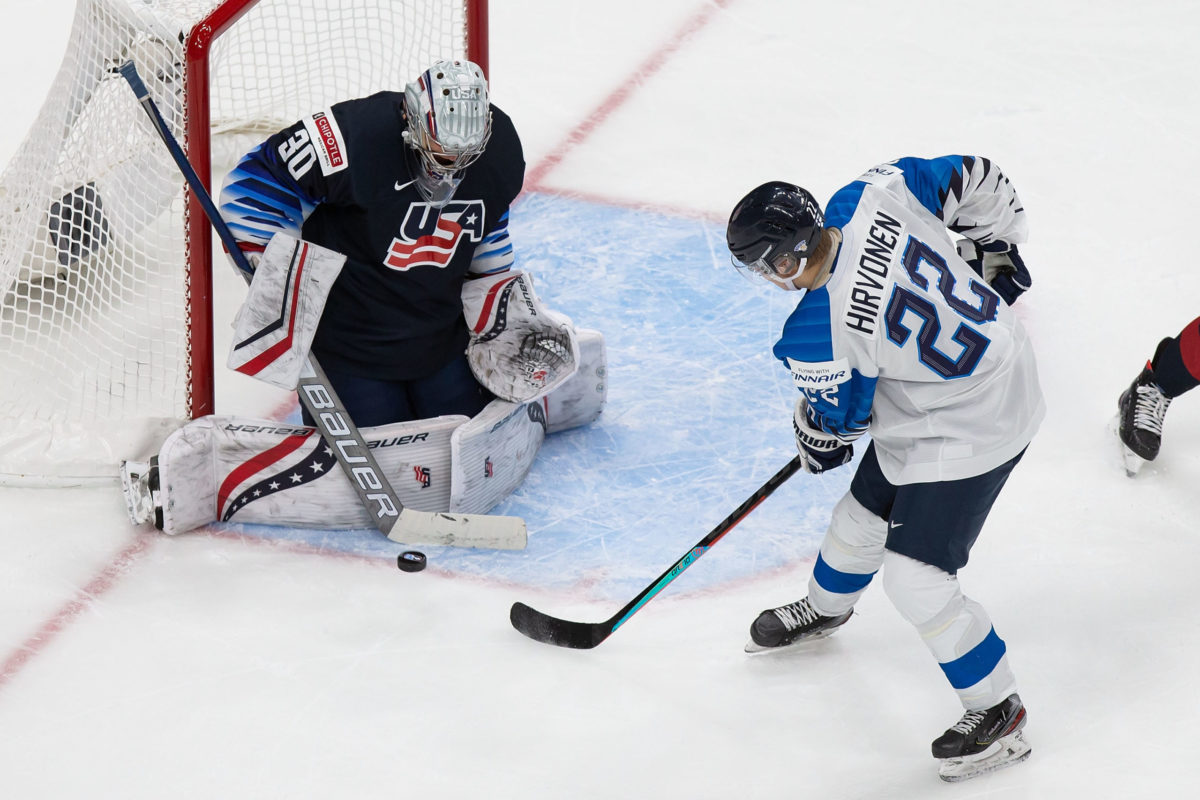
His performance against Canada was no different. Challenging shooters and playing aggressively when needed made it impossible for the Canadians to get anything past him from the perimeter. At the same time, Knight tracked the puck extremely well and controlled his rebounds, limiting Canada’s chances in tight and settling the game down whenever he could.
Reading deflections, reacting quickly, and staying compact and agile allowed Knight to respond effectively to any sign of Canadian pressure. From his patience against Braden Schneider, outwaiting the Canadian defenseman on an odd-man rush, to his ability to keep tight to his body on chances in-tight, the Canadians (aside from a couple of posts and a stick thrown into the net) had no answer to Knight’s brilliance.
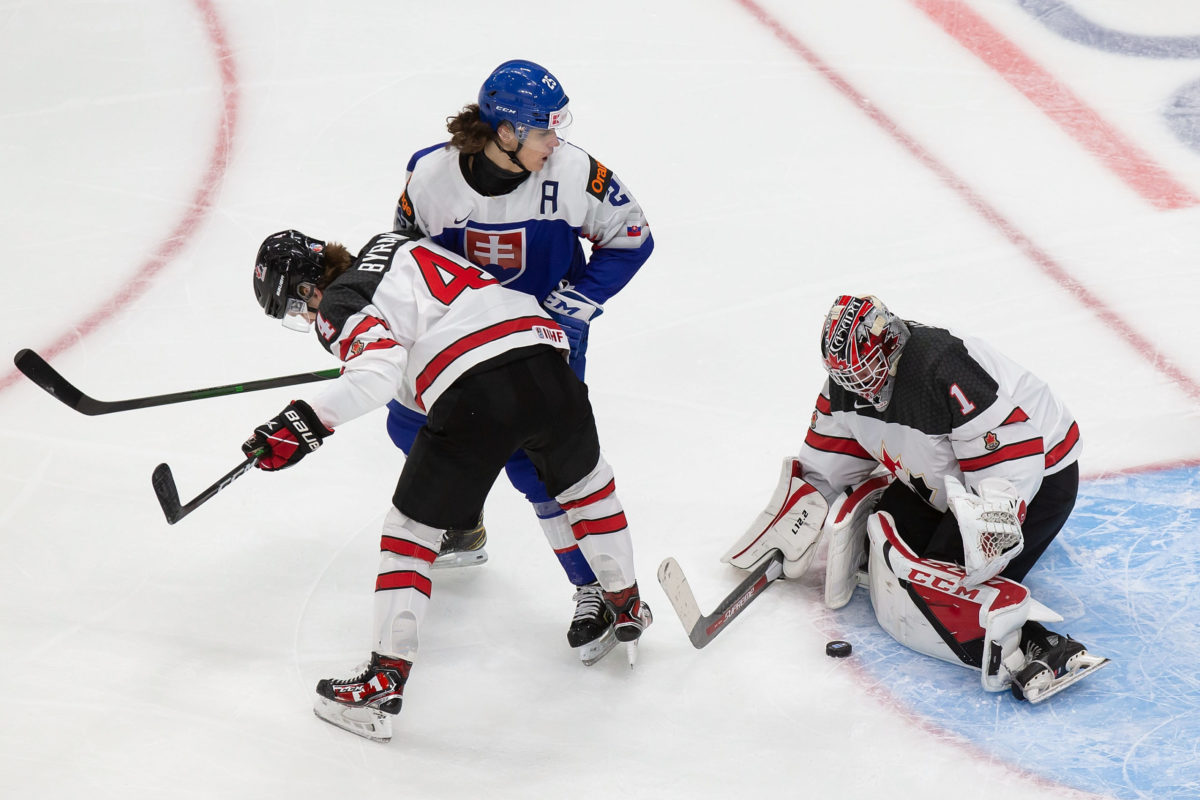
At the other end of the ice, Devon Levi did all he could for Canada. Allowing just two goals, both of which he had no chance on, capped off a historic tournament for the former 7th-round pick. While capturing the tournament’s Best Goaltender Award is a bittersweet end to Levi’s historic performance, the Dollard-des-Ormeaux native will undoubtedly go down in history as one of the best goaltenders that Canada has ever had at the World Juniors.
3. Two Fatal Mistakes Cost Canada the Game
As I said in the prelude, Canada didn’t play poorly. However, in a matchup as tightly contested as this one was, any single mistake could be catastrophic. And looking back at both American goals, the two mistakes that Canada made eventually cost them the game, and a shot at back-to-back gold medals.
In the latter half of the first period, the Canadians were caught mid-change. Scrambling in their own zone with mismatched lines isn’t exactly a recipe for success, but it’s what took place during that shift that can be looked at as a major turning point. On multiple occasions, both Jack Quinn and Peyton Krebs had the chance to chip the puck out of the Canadian zone. However, with Drew Helleson and the aforementioned Sanderson manning the blueline, the play stayed alive in the Canadian end for nearly a minute, with Alex Turcotte eventually taking advantage.
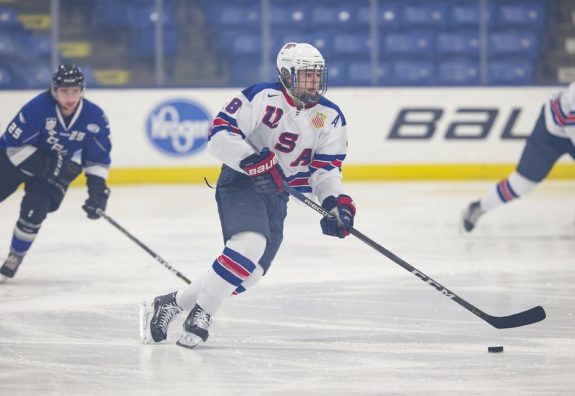
Less than a minute into the second period, Dylan Cozens lost the puck in an uncharacteristic giveaway, allowing Helleson to keep the play alive again. After the puck was launched back into the Canadian zone, Trevor Zegras, who has been one of the tournament’s best players, caught Levi going the wrong way before depositing the puck into the top half of the net.
Upon further examination, the puck appeared to have hit the netcam system attached to the back of the net, providing yet another ironic twist in this year’s gold medal final. As Canada remembers all too well, last year’s team benefited from a camera as well, as one perched above the penalty box ended up saving Canada from a delay of game penalty, before they mounted their unforgettable comeback against the Russians.
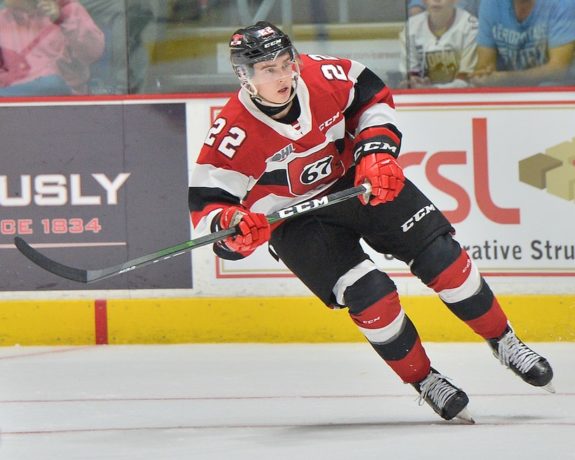
“We bounced back really well and we did a lot of good things”, head coach Andre Tourigny said postgame, fighting through tears. “I’m extremely proud of [our team]. Every time they had adversity they bounced back”.
It’s hard to say for sure what Canada will learn from this. This team, seen by many as one of the best in the country’s long and storied history, ends their tournament with a heartbreaking loss, undoubtedly limiting their impact when compared to the dominant teams of years past. While a gold medal, in hindsight, shouldn’t be the defining moment for how good a team really was, it certainly has an impact, which is unfortunate for a squad who put up similar numbers to some of the best teams this tournament has ever seen.
Where does Hockey Canada go from here? It’s hard to be certain, but one thing’s guaranteed: next year’s edition of the World Junior Hockey Championships can’t come soon enough.
What’s Next for Hockey?
As countless teenagers begin to fly home, to be met undoubtedly with the hugs, handshakes, and congratulatory remarks from friends and family, hockey’s attention now shifts back to the NHL. With a return-to-play agreement now in full swing, the NHL season returns in less than a week, following an unprecedented end to the 2019-20 campaign.
With plenty of unanswered questions heading into the upcoming season, it’s safe to say that coaches, players, and fans alike are gearing up for what promises to be an exciting year of hockey. And if the World Juniors are any indication, hockey in 2021 is already off to a roaring start.
What stood out to you in Canada’s loss? Where does this Canadian team stack up all-time? Let me know in the comments.
All the 2021 World Junior Championship Team Information:
Austria — Team Preview — Roster
Canada — Team Preview — Roster
Czech Republic — Team Preview — Roster
Finland — Team Preview — Roster
Germany — Team Preview — Roster
Russia — Team Preview — Roster
Slovakia — Team Preview — Roster
Sweden — Team Preview — Roster
Switzerland — Team Preview — Roster
USA — Team Preview — Roster
Selection Camp Invites by NHL Team
Draft Eligible Players to Watch
One Player to Watch for Each World Junior Team
7 Predictions for the 2021 World Junior Championship